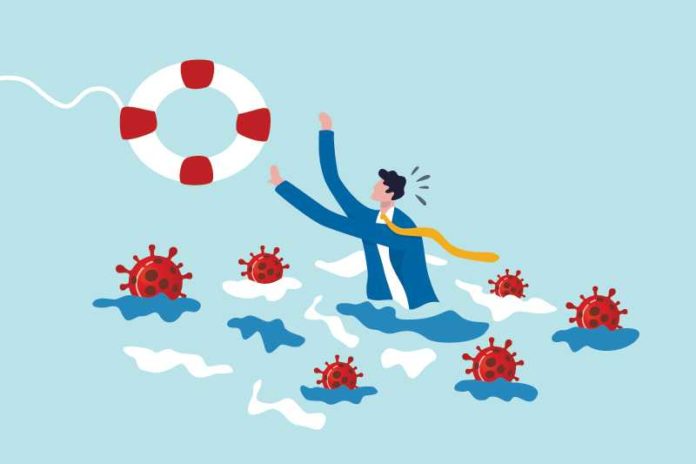Never have things been as unpredictable as now for small businesses across the world. Even as businesses begin reopening after the coronavirus shutdowns, it will be a while before things are entirely hunky-dory. A Facebook survey showed that 31% of small businesses have had to stop operating. Another 11% expect to face a similar plight in the next three months if the situation persists.
Now is the time to reimagine conventions and make a push for digital transformation. Small businesses need to take a good look at their expenses, reinvent sales and revenue channels and even explore newer business models.
1. Sell Online Even If you’ve Never Done It Before
The reality is that even long after the restrictions are lifted, customers will refrain from stepping outside, and online shopping will remain the preferred channel wherever it is possible. A Salesforce survey reveals that 36% of shoppers say they won’t return to brick-and-mortar stores until a vaccine is available.
Small businesses therefore must make the move to digital now if they haven’t yet. Depending on the kind of business, you could sell your products on established ecommerce channels like Amazon, or build your own online store.
Even if you’ve never done this before and cherish your personalized interaction with customers, you could use this crisis as an opportunity to expand your market and create new and sustainable revenue streams.
2. Leverage All Government Benefits
The US Small Business Administration (SBA) has announced a number of initiatives to help small business find their feet in this state of crisis. From loans and funds to debt relief, businesses can avail a number of helpful options. As of March 27, 2020, the CARES Act has been signed into law and promises $376 billion in relief to American small businesses. Under this act, some of the benefits you can avail are –
Paycheck Protection Program
The PPP allows small businesses to avail and be forgiven a loan up to 2.5 times their average monthly payroll costs. SBA will forgive the loan if all employees are kept on the payroll for eight weeks and the money is used for payroll, rent, mortgage interest, or utilities.
EIDL Loan Advance
Economic Injury Disaster Loan or EDIL is currently only available to agricultural small businesses. Such businesses can avail a loan advance of $10,000 that need not be repaid.
SBA Express Bridge Loan
Small businesses that currently have a business relationship with an SBA Express Lender can access up to $25,000 quickly, while they wait for PPP or EIDL loans to come through.
SBA Debt Relief
The SBA will pay off principal, interest and any associated fees of any current loans – 7(a), 504 or microloans. Additionally, any SBA Serviced Disaster Loans that are current as of March 1, 2020 will be automatically deferred through December 31, 2020.
You can check out the SBA website for further details on coronavirus relief options.
3. Explore New Business Models
Food delivery services quickly switched to delivering groceries and essential supplies as soon as the crisis hit. Fashion giants like Zara are now making PPEs like hospital gowns and masks. London based gin distillery 58 Gin paused their gin production to make hand sanitizer. Engineering companies poured their resources into making ventilators. Such examples abound, and small businesses can take a lesson or two in pivoting their business model in a way that better fits the current times.
4. Perform a Thorough Analysis of Costs, Revenues and Deductibles
If ever there was a time to do some serious accounting, it’s now. Take a good look at your costs and expenses, and muster up the courage to make some tough decisions. Calculate the expenses against the cash flow and figure out all expenses that can be cut back or at least delayed. It is a good idea to start cutting back on flexible expenses early on so that you can divert cash flow into more vital areas.
5. Make Separate Plans for Long Term and Short Term
It will be a while before we can really estimate the total impact of coronavirus. For now, we can plan for the immediate future, one step at a time. Make plans for 3 months, 6 months and a year. You could probably cut back on hiring, marketing and travel expenses for the next 3 months. If the situation persists over a 6-month period, you may want to reduce variable expenses as well as renegotiate some fixed expenses such as rent, lease, equipment and salaries. Depending on your business, your marketing expenses may need to be scaled up or cut back. If the economic slump continues beyond the year, your business may require a complete strategy redesign.
6. Keep Calm and Stay Updated
Together, we shall get through this. Despite the fact that most small businesses are cash strapped and in acute distress, the weekly US Census Survey reveals some businesses have already started showing signs of recovery. 67% of respondents report having received the PPP money, up from 38% in previous batches of the survey. 62% reported decline is revenue which is bad, yes, but it’s less than 74% reported in the earlier weeks.
So while things still look bad, it is important to stay calm and keep on swimming.
Wrapping Up
One way the coronavirus crisis is unique is that it has affected individual across the world. From small businesses to large organizations and customers in general, everyone’s lives have changed. Which is why we are in this together. As long as we hang tight, adapt and persevere, we will come out stronger on the other side of this.
Hiral Atha is the CEO of Moveoapps, a premium mobile and web app development company. Aside from building top notch apps, she likes to write about startups, small businesses and women in tech. Connect with her on Twitter at @hiralatha (https://twitter.com/hiralatha )
Survival stock photo by eamesBot/Shutterstock







